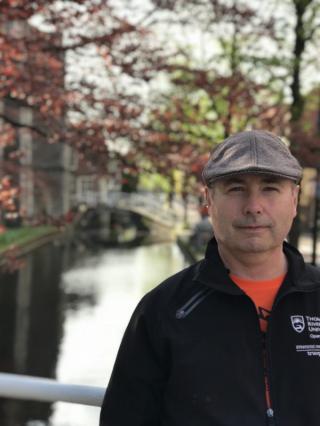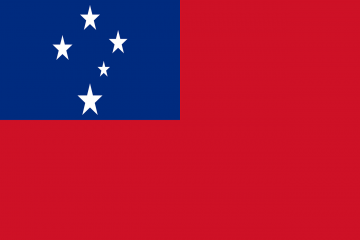A Canadian OERu partner is at the forefront of making free online education more accessible around the world—a resource that’s even more important since the COVID-19 pandemic has shuttered classrooms.
Thompson Rivers University (TRU) is the first in North America to offer international credential transfer based on open educational resources that are available free online. It is also among the first in the world to recognize micro-credit transfer toward a university-level qualification.
transfer based on open educational resources that are available free online. It is also among the first in the world to recognize micro-credit transfer toward a university-level qualification.
This means students around the world can study bite-sized courses and compile them to get university credit from a respected institution.
This achievement puts TRU at the forefront of making education available to people everywhere, particularly those in developing countries or with limited funds to pay for courses.
“TRU has led the way to implementing a transnational, micro-credentialling system with pathways to achieving a university qualification,” said Wayne Mackintosh, Open Education Resource Foundation managing director and facilitator for the Open Education Resource universitas (OERu).
The OERu is a network of universities, polytechnic schools and community colleges from Africa, Asia, North America, Europe, the Middle East and Oceania united in their drive to make education affordable for all, particularly for those living in developing countries, through open educational resources. Students anywhere in the world can take these short courses free of charge, and only pay if they choose to get credit for their studies.
Micro-courses are ideal for people who are reskilling for a new career or who want to try post-secondary learning without incurring a lot of debt. Students can study wherever they live and get credit or qualifications from an institution in another part of the world.
With more than 40 years of offering online and distance education, TRU’s Open Learning (OL) department has been a leader in getting courses and programs to people where they live. Being able to offer OER-enabled credentials and micro-credit transfer puts OL at the forefront of making that education available to those who can least afford it.

Don Poirier
“This is the first formalized step where students have the opportunity to take sufficient courses through OERu to get a credential,” said Don Poirier, associate vice-president of Open Learning.
“We started with the Certificate of General Studies. Our intention is to go on to the diploma and then bachelor’s degrees as we build the course reservoir through OERu.”
“This step with OERu is a giant leap forward”
The Open Education Resource universitas (OERu) was established in 2011 as a non-profit initiative that promotes access to free online courses for students around the world. Funded by a New Zealand based foundation, OERu allows students to take free courses in small blocks, or micro-courses, through the member institution of their choice. Students do pay for assessment services if they want to get credit for them.
All online courses are based exclusively on open educational resources, so there are no expensive textbooks or other materials required, said Mackintosh, who is New Zealand’s UNESCO/International Council for Open and Distance Education Chair in Open Educational Resources.
“OERu was established as an international, social innovation partnership to widen access to more affordable education for learners, especially in developing countries, who would otherwise not have access to higher education. It’s a non-profit foundation with a charitable mission to provide more affordable ways to credible educational credentials,” he said.
Poirier said TRU President Brett Fairbairn and Provost Christine Bovis-Cnossen have been strong supporters in making education as accessible as possible and in Open Learning’s commitment through OERu.
“We believe in what this is trying to accomplish. We believe in the reduction of barriers and we believe in the right of people to have access to post-secondary education,” he said.
The institutions that are partners in the OERu are united in their commitment to the organization’s values, said Poirier.
“It fulfills a mission around social good and building capacity within our communities. Especially those that are struggling, with finances or geography,” he added.
“Co-operation requires work, dedication, thoughtfulness. As we see through this pandemic, the financial pressures institutions are feeling, there is an understandable and natural desire to contract, keep what you have, pull in and survive the storm. This is a wonderful example of the opposite. We can continue with our various missions, we can continue to do good. It’s an act of trust.”
Universities around the world are changing the way they deliver education, not just in response to the pandemic, but to reach as many people as possible. This step with OERu is a giant leap forward, Poirier said.
“You need the trailblazers. For TRU, this not only demonstrates a commitment to our mandate around open access, but to communities worldwide and our belief in the power of co-operation and collaboration to meet very big challenges. Because society, whether it’s in our region, our country or world communities, we’re dealing with a lot of big issues. So any time post-secondary institutions can learn to work together, to pool their resources and knowledge, that’s good news.”
Credits
Extended version of press release published by Thompson Rivers University, June 9, 2020.
Don Poirer, all rights reserved, used with permission from Thompson Rivers University.

